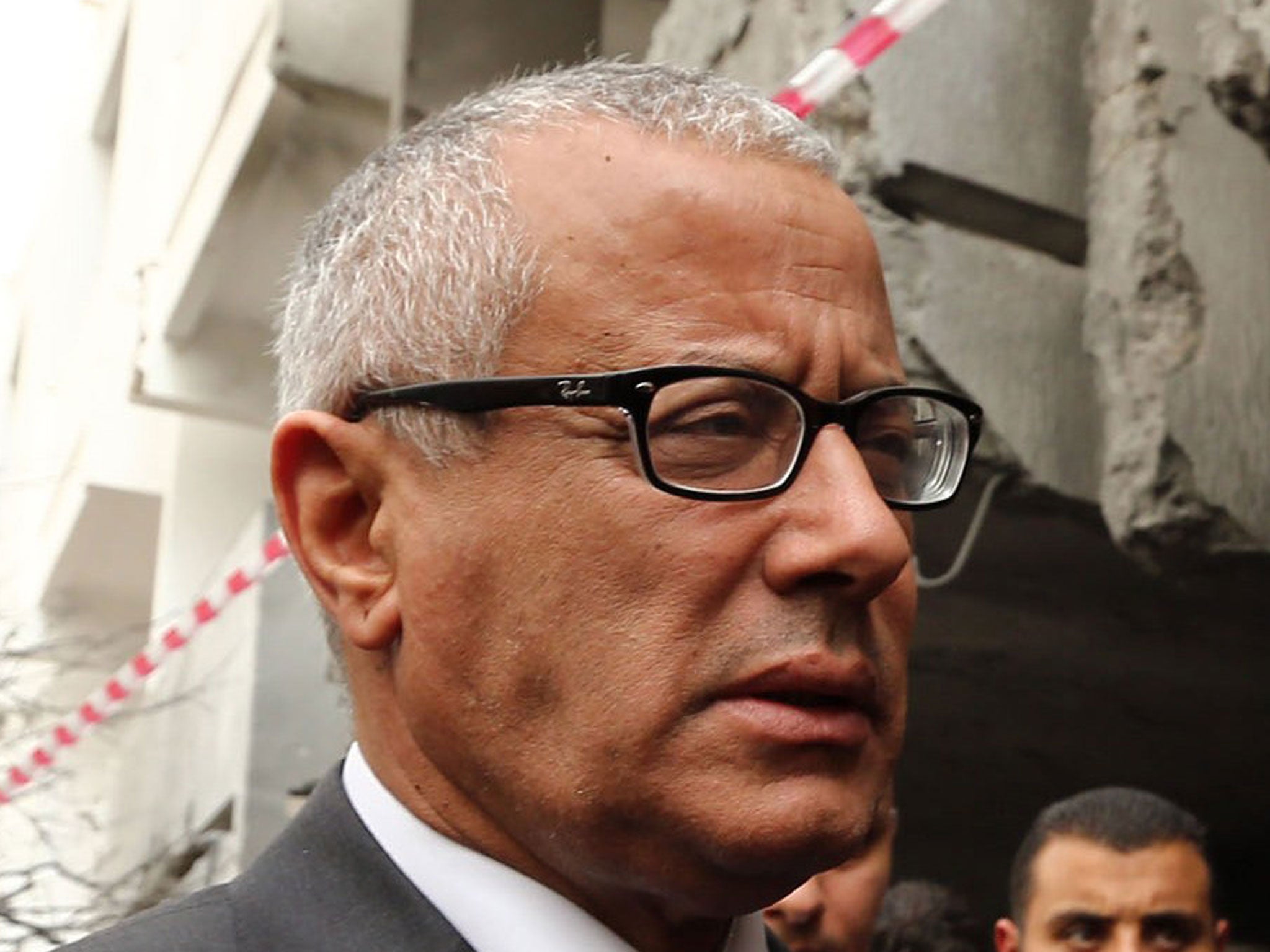Is no one safe in Libya? PM has to be rescued from kidnap gang
Ali Zeidan was freed after half a day, but his abduction highlights a nation’s slide into chaos

The Prime Minister of Libya was kidnapped by gunmen today in one of the most high-profile examples of how law and order still remains elusive more than two years after the overthrow of Muammar Gaddafi.
The abduction of Ali Zeidan slid the country’s administration into a state of confusion and alarm and led to clashes between rival armed groups. He was freed after half a day, but there was little guarantee that such extraordinary and chaotic episodes would not be repeated without the presence of a properly constituted police force and army, and the disbanding of private militia connected to different government departments.
One such militia, calling itself the Reinforcement Force, which is linked to the interior ministry, claimed that it had carried out the rescue after attacking the militia which was holding Mr Zeidan. The groups which had carried out the abduction, the Libya Revolutionaries Operations Room (LROR) and the Anti-Crimes Unit, have ties, respectively, to the parliamentary speaker and the defence ministry.
The two groups claimed they were acting on a warrant issued by the prosecutor-general and in accordance with a section of Libya’s criminal code relating to “crimes and misdemeanours harmful to state security”. Abdel-Moneim al-Hour, an official with the interior ministry’s anti-crime committee, confirmed that the Prime Minister had been accused of harming state security and corruption, and was being held in the ministry’s anti-crime department. But Justice Minister Salah al-Marghani insisted that no such warrant had been issued.
The abduction took place at the Corinthia Hotel in the capital. It was there that many international journalists had stayed during the fall of Tripoli to the rebels. Attacks on the building had resulted in extensive security precautions, and Mr Zeidan had been staying there because he was worried about his safety. But there was no effective protection for him when the gunmen, the real power in the land, came calling.
Mr Zeidan, who had been filmed during his brief captivity, looking highly strained, was remarkably circumspect about his experience, refusing to say who had taken him away at gunpoint and why; limiting himself to saying: “We hope this matter will be treated with wisdom and rationally, far from tension. There are many things that need dealing with.”
Many of the militias, especially the Islamist ones, had expressed anger at the seizure by US forces of Anas al-Liby, a senior al-Qa’ida operative, outside his home in Tripoli, and denounced the government for failing to protect Libyan sovereignty. But LROR announced that the “arrest” was unconnected with the American raid.
The Prime Minister, however, had also spoken out against the continuing presence of militias, and had asked for Western help in building up official security forces to combat lawlessness, including kidnapping.
The brother of al-Liby said after his capture that until a call came from CNN, the family had thought it was “an ordinary Libyan kidnapping”.
The UK will soon begin a programme of training 2,000 men for the fledgling national army.
Subscribe to Independent Premium to bookmark this article
Want to bookmark your favourite articles and stories to read or reference later? Start your Independent Premium subscription today.

Join our commenting forum
Join thought-provoking conversations, follow other Independent readers and see their replies